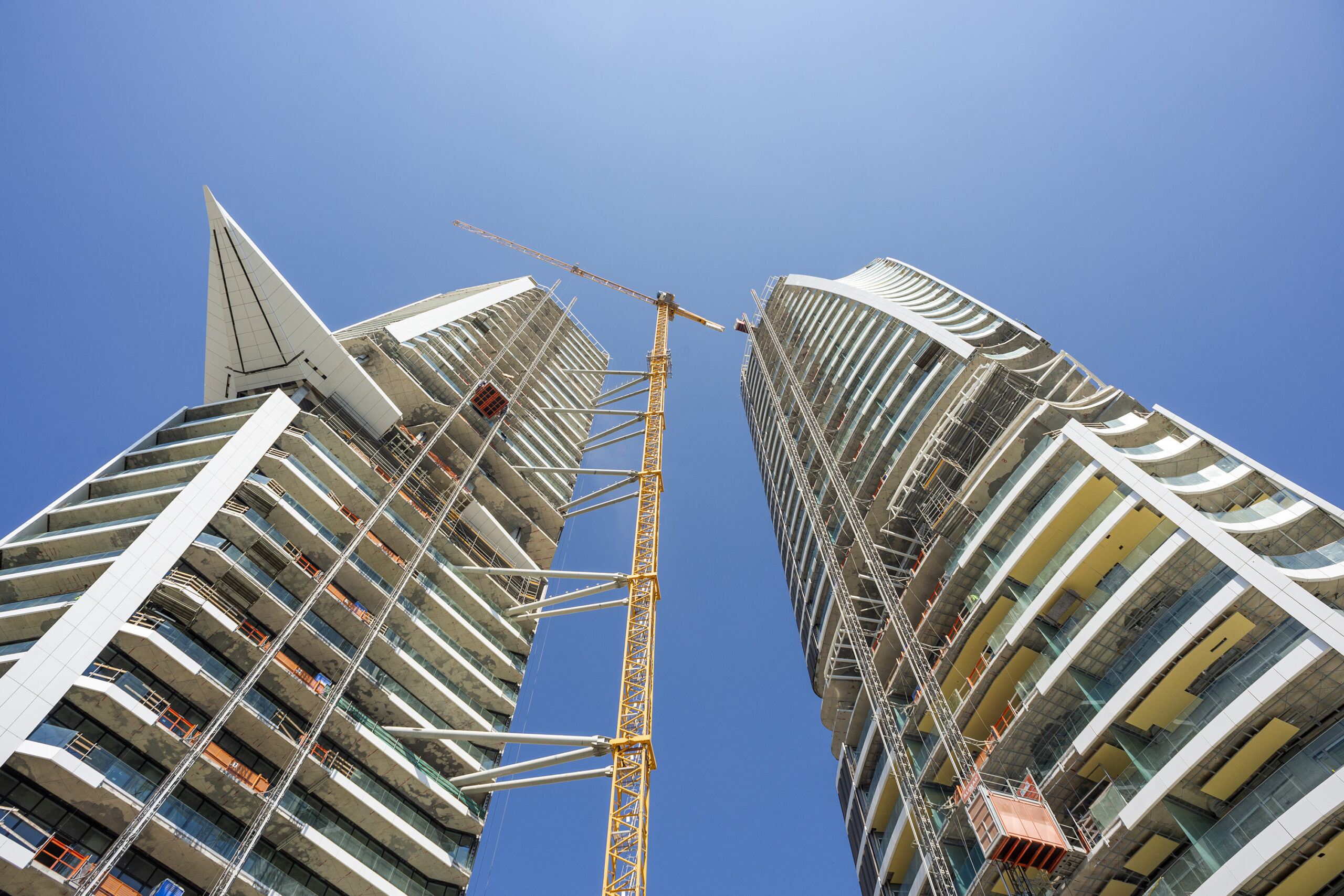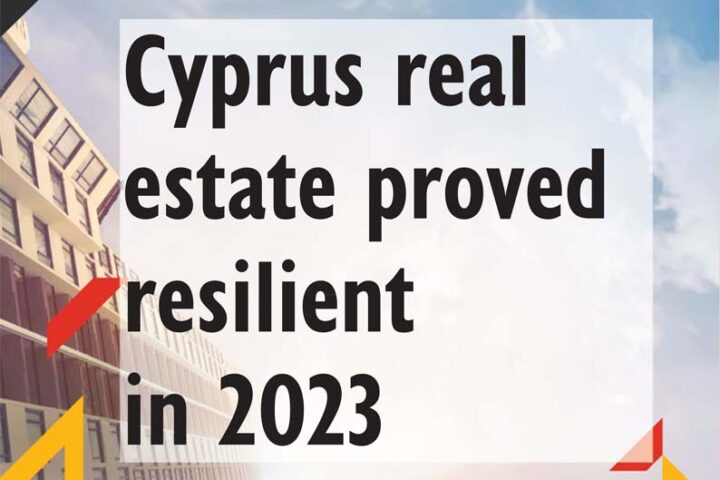Cyprus’ real estate market is not showing any signs of slowing down, fueled by foreign buyers, as 2023 is close to becoming the best year since 2008 when a global property crisis kicked in.
Real estate has proven resilient, but stakeholders continue to bank on rising foreign investment despite uncertainty prevailing in the economic environment due to the energy crisis, the increase in interest rates and the Middle East war.
As evidenced by Land Registry figures for sales documents, the first 10 months of 2023 were the best on record for the sector since 2008.
According to the data, sales documents filed until October were 12,825, up from 10,781 last year, marking a whopping 36.2% increase.
This is the best ten-month period since 2008 when sales reached 13,261 units.
In comments to the Financial Mirror, Eleni Averkiou of Danos/BNPRE Group said the real estate market continues its upward trajectory, with developments in neighbouring countries not taking a significant toll.
Averkiou pointed out that Limassol dominates in absolute numbers (4,225), maintaining a noticeable difference of more than 45% from Paphos (2,878), and remains the most popular choice for investment.
Sales documents submitted for Larnaca properties were 2,612, up from 1,976 last year.
Paphos sales increased by 25.3%, reaching 2,878 from 2,297.
A 21.8% rise was also seen in property sales in Famagusta, 14.17% in Limassol and 8.3% in Nicosia.
“It is interesting that all the districts, except Nicosia, recorded double-digit growth.
“Notably, it is Larnaca that stands out when it comes to growth,” said the property analyst.
She noted that sales data show a 32% increase in Larnaca compared to last year.
“Looking solely at growth, Larnaca is the champion in attracting new investment interest after seeing leaps and bounds after the end of the pandemic.
“This is a result of various development and infrastructure projects that have been announced in recent years, giving additional impetus to the market and strengthening investment interest,” said Averkiou.
Although Nicosia was a fundamentally strong market from the end of 2022 until 2-3 months ago, it relapsed.
“This, however, was something that reversed after the summer”.
Averkiou said that so much of Larnaca’s growth and Nicosia’s return to the market is due to the saturation process in Limassol and prices reaching record heights.
“We have seen interest from companies looking to relocate or set up shop in Cyprus, overspilling from Limassol to Larnaca and, to some extent, to the capital”.
Limited supply
She said Larnaca is particularly popular with Israelis moving to the island, creating a demand for higher-end properties, for which supply is limited in the district.
“This could well fuel the construction of housing projects in the coming months.
“Receiving requests for Larnaca has more or less become a daily affair, while we have seen employees of Limassol-based high-tech companies seeking homes to rent in the capital.
“Especially from people who can work remotely”.
The real estate agent noted that Nicosia also benefits from Ukrainian refugees who had initially settled in Limassol but have now been outpriced.
Averkiou expects the market and prices to stabilise in the coming year.
“It will also depend on developments regarding the foreclosure law.
“If banks are given the green light to go ahead with foreclosing primary residents, then we could see the pool of available properties grow, boosting sales even further”.
Director of Delfi Properties, George Foukarides, confirmed the real estate market’s flexibility.
“Despite the persistent challenges that are beginning to affect it, the Cypriot real estate market demonstrates remarkable resilience.
“Both domestic and international demand for real estate remains largely unaffected.
“The ever-increasing interest of foreign buyers has proven pivotal at a time when local buyers seem to be more cautious,” said Foukarides.
Special Projects Manager of Delfi Partners and Company, Natasa Apostolou, said, “Cyprus, driven by political stability and an attractive legal framework, is now one of Europe’s fastest-growing investment centres”.
She argued that the revival of the real estate sector is largely due to foreign capital.
“Rapid growth and the inflow of foreign capital have led to an increase in prices while there has been a marked increase in demand for luxury homes and Grade A offices with many foreign companies having moved their offices and staff to the island.
“However, balancing foreign investment with local needs is of utmost importance to achieve and ensure the sustainable and long-term growth of the sector at a time when rising inflation is weighing on the economy.
Delfi Properties has recently released data on average selling prices of homes per district for the first eight months of the year.
Nicosia has the lowest average sale price for a house at €180,000 recorded from January to August, well behind the Limassol district, where the average sale value is €326,000.
The average price in the district of Nicosia has decreased by -1.2% compared to last year, in contrast to Limassol, where the average price has increased by 11.5%.
The district of Famagusta recorded the biggest increase in the average sales price year-on-year as it jumped by 52.4% to €272,000.
Paphos follows with €230,000 and an increase of 14.4%.
In Larnaca, the average sale price in the first eight months reached €194,000, recording an increase of 8.3%.










